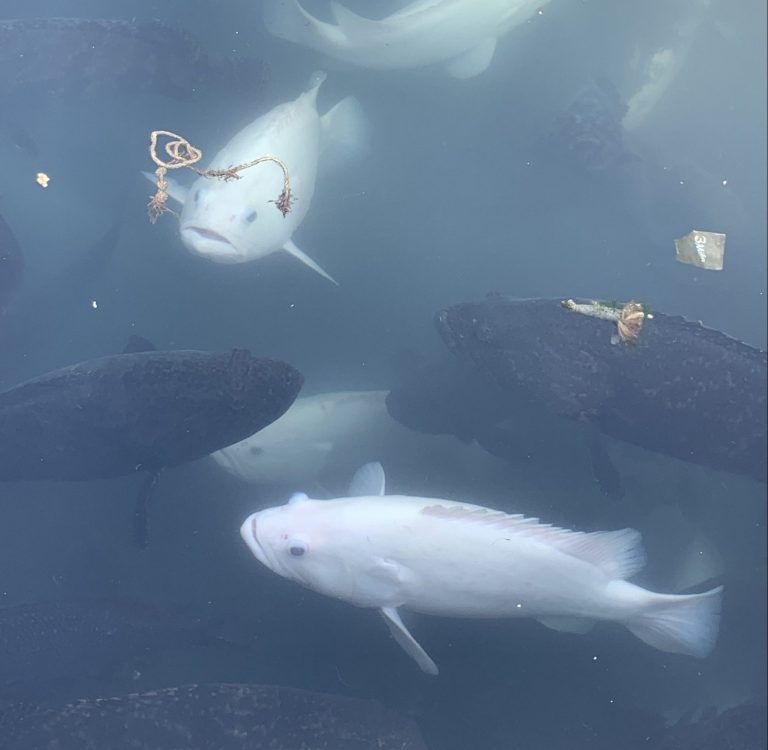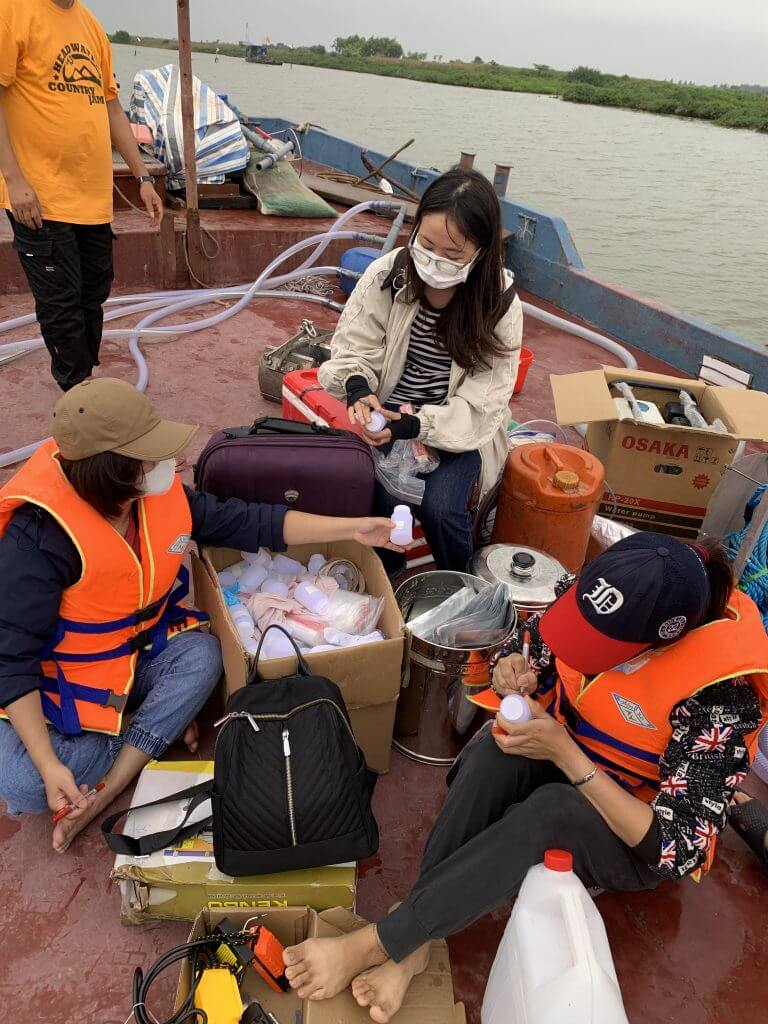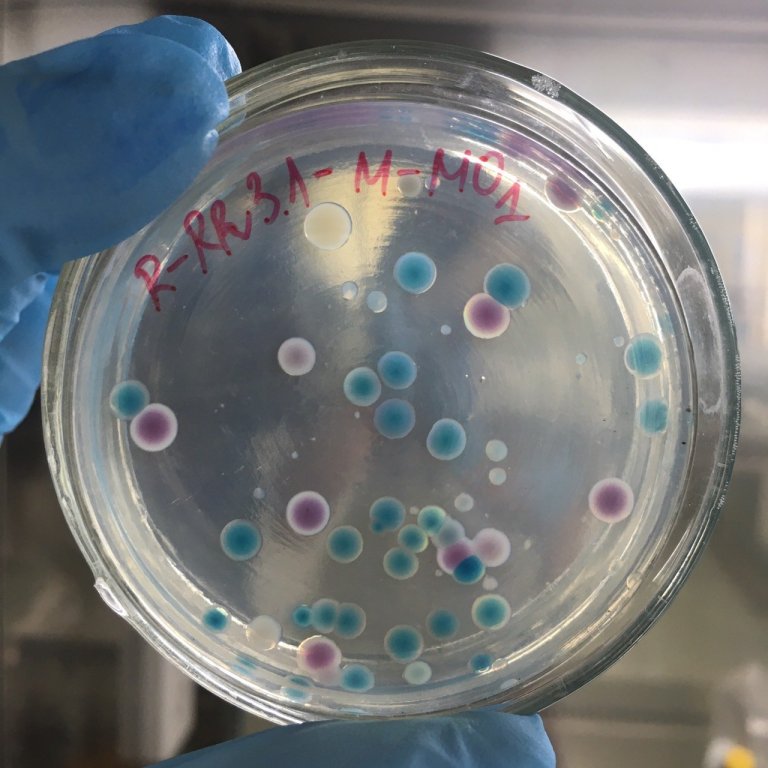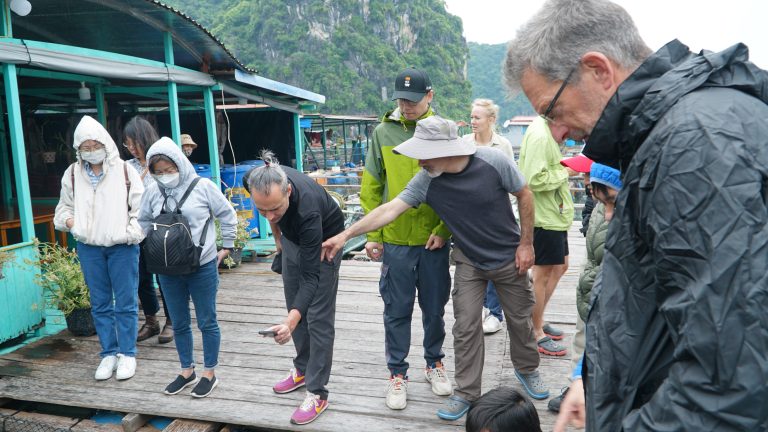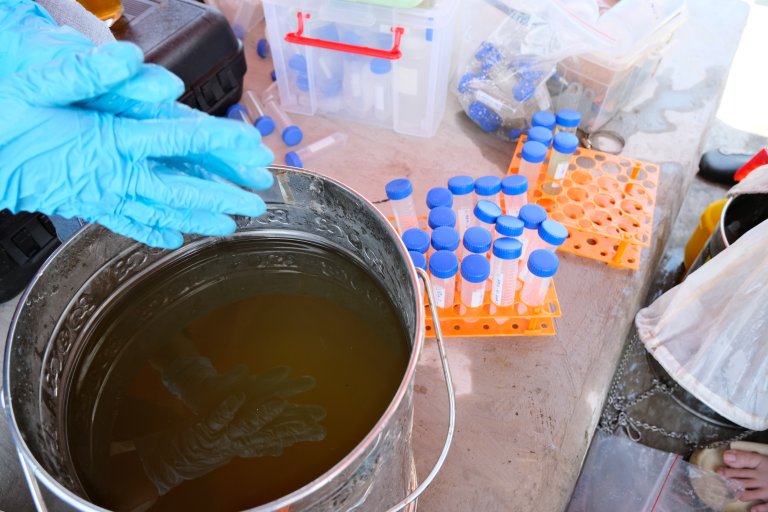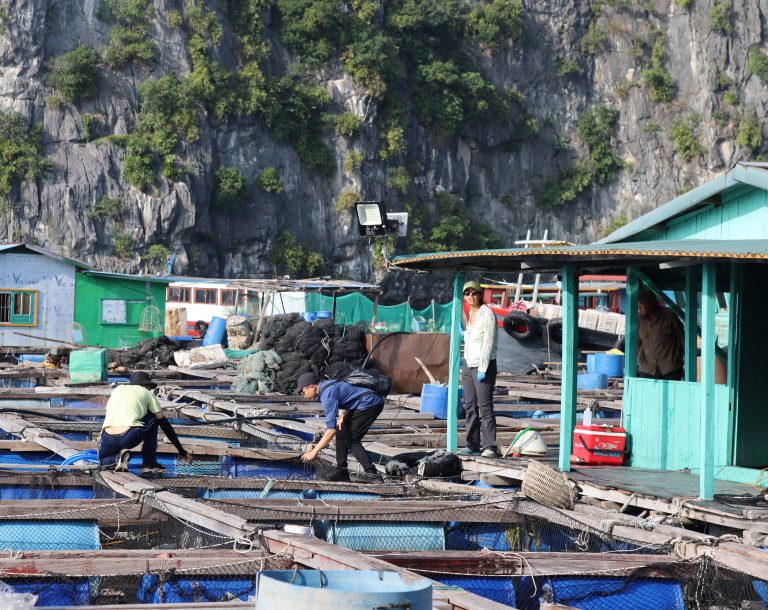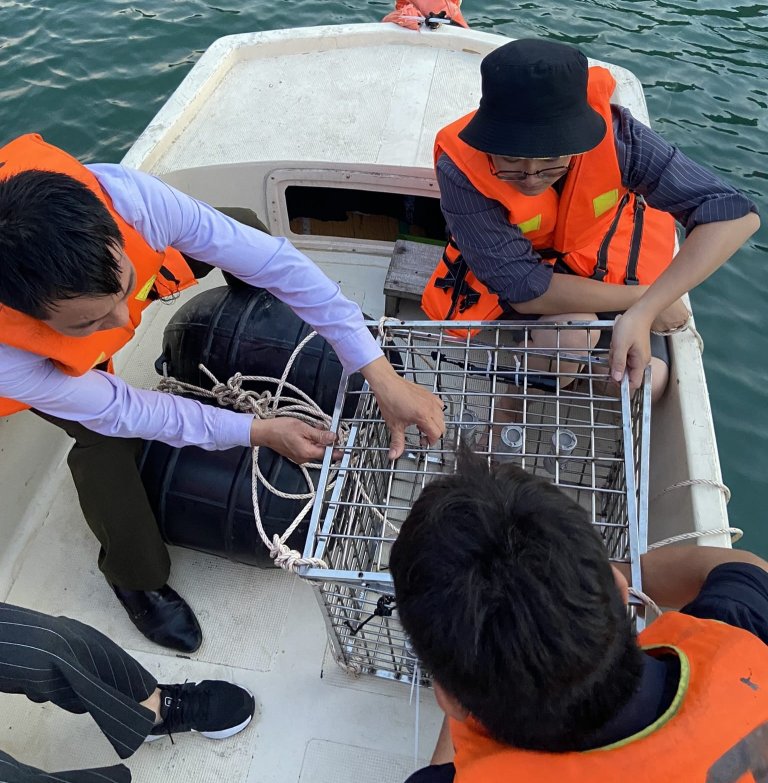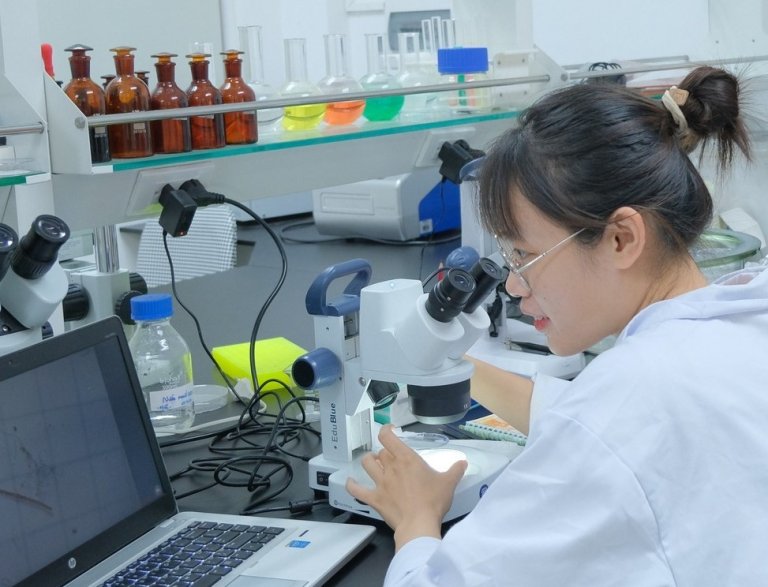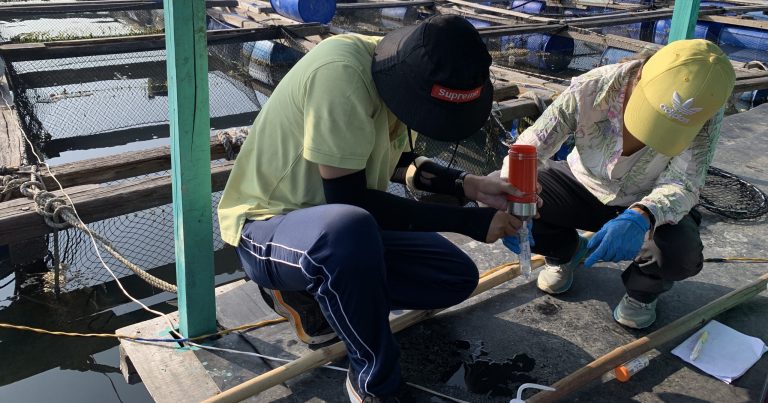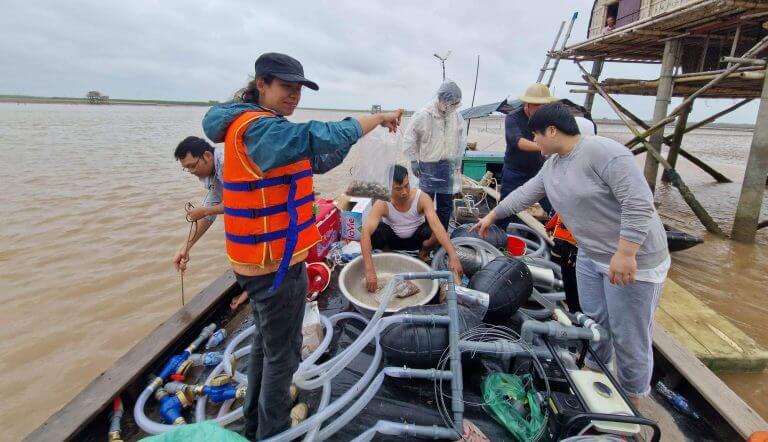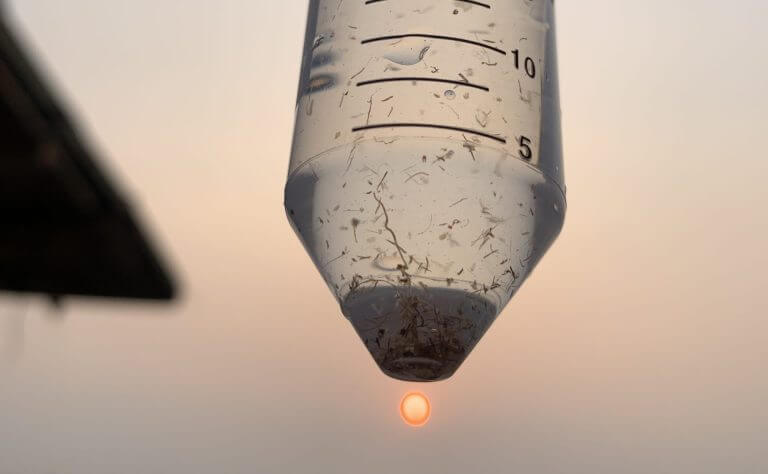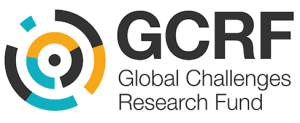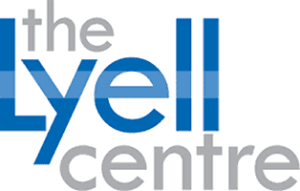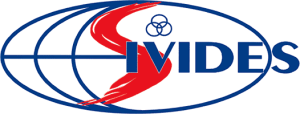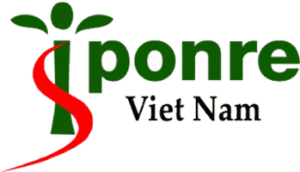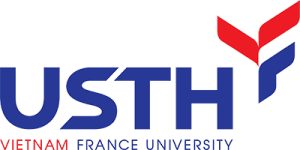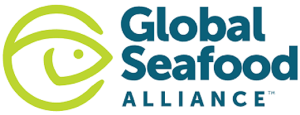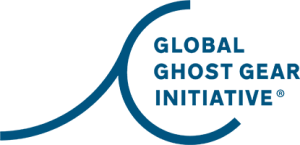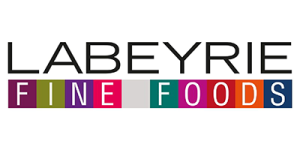In water, microplastics are often found clumped together with microbes and other contaminants rather than as individual particles floating around. They can appear as food for small animals (such as fish and shrimp) and filter feeders like clams. To understand the potential risks of microplastics on aquaculture farming, and to help inform farmers on best practice to reduce the risks to their livestock and consumers, we need to understand the fate of microplastics through an aquaculture system.
Few studies have investigated this issue, particularly in Southeast Asia. Our research examines how pathogens and contaminants of concern (trace elements and persistent organic pollutants, or Contaminant of Potential Ecological Concern – COPCs) associated with microplastic particles affect the health of aquatic ecosystems and how consuming aquatic products contaminated with microplastics affects human health.
For this, we need to peer through the eyes of the microbes, as they are major colonisers of microplastics and are pivotal degraders and recyclers of plastics and their associated toxic chemicals. By using the available indices and models, we are conducting more lab tests using cutting-edge technology in microbiology, ecotoxicology, and other related fields to explore and evaluate the potential impacts of microplastics on human and environmental health.
